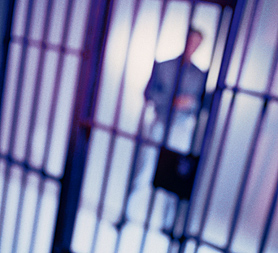Emergency law planned to overturn bail chaos
As the Government announces plans for emergency legislation to overturn a controversial legal ruling on bail, Labour says ministerial delay is jeopardising police operations.

Policing Minister Nick Herbert said the legislation would be brought to Parliament “as soon as possible”.
Under a ruling made by a district judge and backed by a High Court judicial review, police officers will no longer be able to detain suspects for more than four days without either charging or releasing them.
Until now, the police and courts have interpreted the 1984 Police and Criminal Evidence Act as allowing the police to release a suspect on bail for a period, without running up against the 96-hour detention limit. The custody “clock” is effectively stopped during the period of bail and re-started again if the suspect is brought in again for questioning.
In a statement to MPs, Mr Herbert said: “I can tell the House that we will urgently bring forward emergency legislation to overturn the ruling.
“That emergency legislation will clarify the position and provide assurance that the police can continue to operate on the basis on which they have been operating for many years.
“Thousands of ongoing investigations are being jeopardised right now.” Shadow Home Secretary Yvette Cooper
Labour’s Shadow Home Secretary Yvette Cooper said Ministers were still failing to sort the problem.
“Shocking delays and Home Office incompetence are still putting investigations at risk, and jeopardising justice for victims,” she said.
“Ministers confirmed that the Home Office has known about this for over a month yet they still haven’t finished the emergency legislation, and the police still don’t know what they are supposed to do with suspects today.
“That means thousands of ongoing investigations are being jeopardised right now.”
‘A dead duck’
The case which has plunged British justice into chaos involves Paul Hookway, who called an ambulance for Malcolm Short after he collapsed at his flat in Salford on 5 November 2010.
After Short died in hospital, Mr Hookway was arrested on suspicion of murder but not charged. He was released on bail after 28 hours in custody.
The problem arose when on 5 April 2011, a district judge, Jonathan Finestein, refused Greater Manchester Police permission to extend the period for which Mr Hookway could be detained to 96 hours.
The judge was acting after a clerk concluded it would be unlawful to grant an extension because 96 hours had expired four days after Hookway’s original arrest. In the process, an interpretation of the law that has prevailed for 25 years was overturned.
Commenting on the development, Sir Norman Bettison, West Yorkshire Police Chief Constable, said: “The issue of putting people on bail for further questioning when they answer their bail is pretty much a dead duck.”
Nick Herbert said the initial ruling was made on 5 April by a district judge who refused a routine application from Greater Manchester Police for a warrant of further detention of murder suspect Paul Hookway.
On 19 May, Mr Justice McCombe confirmed in a judicial review the district judge’s decision. His written judgment was made available on 17 June.
Herbert said: “Since then, Home Office officials and lawyers have been working with the police, the Crown Prosecution Service and others to evaluate the scale of the problem this judgment presents.
“When the scale of the problem became clear, ministers were alerted on 24 June.”
Thousands ‘could escape prosecution’
He warned that, in some cases, suspects who would normally be released on bail would be detained for longer and it was likely that, in most forces, there would not be enough capacity to detain everybody in police cells.
“In other cases, it risks impeding the police to such an extent that the investigation will have to be stopped because the detention time has run out,” he said.
Sir Norman Bettison, the Chief Constable of West Yorkshire Police, said on Wednesday that thousands of murderers, rapists and violent criminals could escape prosecution following the ruling.
Despite the ruling, forces are continuing to release suspects on police bail.
About 4,260 suspects are currently on bail from his force alone – which represents about 5 per cent of the police service – meaning about 85,200 people are on bail at any one time, he said.
bail ruling
-

Bail case ruling stuns police
29 June 2011
-
Latest news
-
As India goes to the polls in the world’s largest election – what do British-Indians think?6m

-
Tees Valley: Meet the candidates in one of the biggest contests coming up in May’s local elections4m

-
Keir Starmer says public sector reform will be a struggle7m

-
Nicola Sturgeon’s husband Peter Murrell charged with embezzlement of funds from SNP1m

-
Ukraine might finally get $60billion in American weapons and assistance to defend against Russia3m

-





